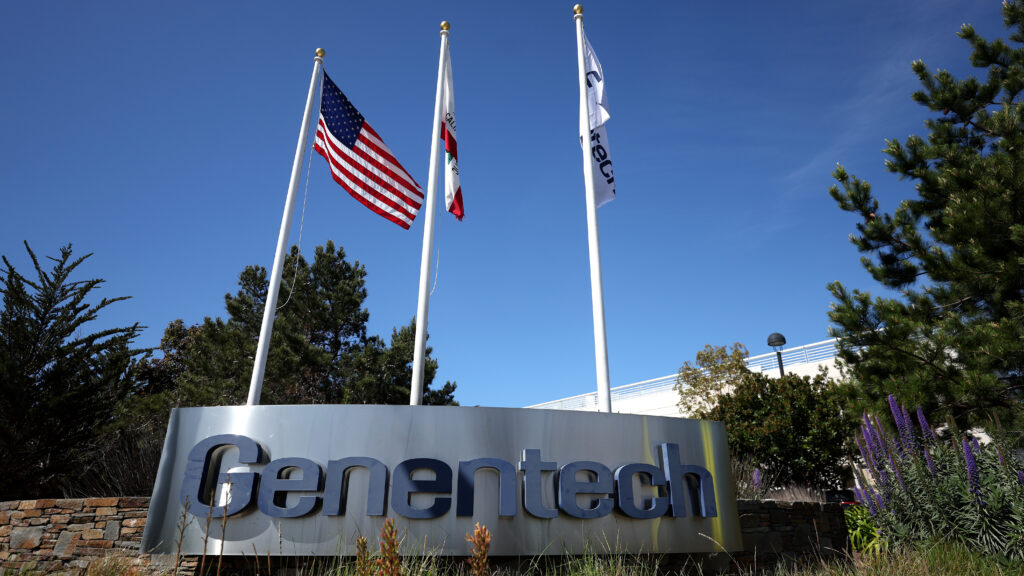Want to stay on top of the science and politics driving biotech today? Sign up to get our biotech newsletter in your inbox.
Hey there. We await one of the year’s biggest biotech readouts, and have lots of GLP-1 news today: Eli Lilly’s offer to slash pricing for Zepbound isn’t as magnanimous as it appears, and more.
advertisement
Hims GLP-1 strategy could invite backlash from FDA, drugmakers
The wildly popular telehealth company Hims & Hers has been offering compounded versions of GLP-1 weight loss drugs, amid shortages of FDA-approved versions. The company, which has expanded aggressively, plans to continue selling GLP-1s even after the shortages end.
But this strategy could attract scrutiny from regulators and legal challenges from the drugmakers: Compounding outside of shortages or creating drugs that are too alike to approved medications is highly regulated.
“As the brand-name GLP-1 drugs come off of the shortage list, I would expect this to be a hot area for litigation,” a patent law expert at Georgia State told STAT.
advertisement
The Zepbound price cut is … complicated
Earlier this week, Eli Lilly launched lower-priced vials of its obesity drug Zepbound, framing the decision as a way to expand access. But the move is being met with skepticism from some doctors. Though vials with starter doses will cost $549 per month now, as opposed to the $1,060 injectable pens, that price will still be out of reach for many patients. And patients will need to ramp up to higher doses in order to achieve significant weight loss.
On the same day that Lilly announced the Zepbound discount, it quietly increased costs for other patients, STAT’s Elaine Chen writes. The company initially offered a coupon for people with commercial insurance to get the pens for $550 a month, regardless of dose. That’s come up to $650 a month now, though the hike wasn’t mentioned in the press release.
The full HELIOS-B readout is coming soon
Alnylam will finally reveal the full results of the closely watched HELIOS-B trial tomorrow morning at the European Society of Cardiology meeting in London. The study tested the RNA-interference therapy vutrisiran in transthyretin amyloid cardiomyopathy, or ATTR-CM. Topline results were released in June, and showed the drug reduced the risk of death and recurrent heart complications by 28% compared to placebo over three years.
Analysts and cardiologists are eagerly awaiting more detailed data to get a better sense of the drug’s benefit in specific patient populations, which could shape its commercial success. Analysts project the drug could top $7 billion in sales in 2033.
Alnylam said it plans to file for vutrisiran’s approval for ATTR-CM later this year, with a launch planned for 2025.
Read more (from last week, when we were off. Still topical!)
Genentech is shedding even more employees
More downsizing for Genentech: It will lay off 93 employees in South San Francisco beginning in October. This follows a larger round of layoffs in April that affected 436 employees, as well as the closure of the cancer immunology research department earlier this month.
“We regularly evaluate our operations to ensure we remain well-positioned to meet the needs of patients today while continuing to deliver innovative new medicines in the future,” Genentech told FierceBiotech. “As part of these ongoing evaluations, we identified certain positions across Genentech that are no longer needed in support of our future work.”

